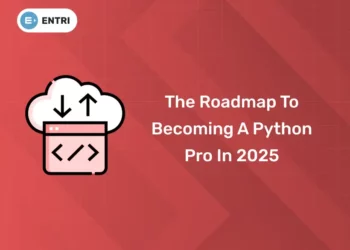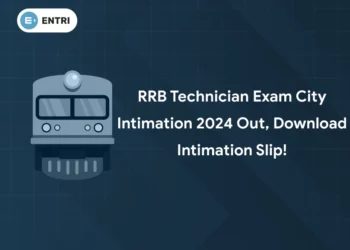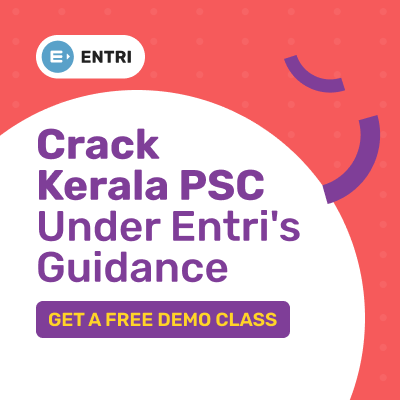Table of Contents
The Kerala Public Service Commission (PSC) has just unveiled the tentative syllabus for the 2024 High School Teacher (HSST) exam. The revised syllabus is now ready for download. Eligible candidates are encouraged to download the Kerala PSC HSST Syllabus 2024 and commence their preparations. Scroll down to access it now!
KERALA PSC HSST COMMERCE ONLINE COACHING
KPSC HSST QUESTION PAPER COLLECTION
Kerala PSC HSST Commerce Syllabus & Exam Pattern 2024: Highlights
| Event | Details |
| Name of Exam | Higher Secondary School Teacher Junior (Commerce) |
| Category Number | 127/2024 |
| Conducted for | Educational Department |
| Exam Organizing Body | Kerala Public Service Commission (KPSC) |
| Level of Exam | State Level |
| Vacancy | Anticipated |
| Application Status | Open |
| Notification Release Date | June 15, 2024 |
| Application Starts | June 15, 2024 |
| Last Date to Apply | July 17, 2024 |
| Recruitment type | Direct |
| Mode of Exam | Online |
| Exam Duration | 1 Hours 30 Minutes |
| Official Website | keralapsc.gov.in |
KPSC HSST COMMERCE STUDY NOTES 2024
Kerala PSC HSST Commerce Syllabus & Exam Pattern 2024: Download PDF
1: Which Year First Assembly Election was held in Kerala?
To access the detailed Kerala PSC HSST Commerce Syllabus 2024 (tentatvie), simply click on the link provided below. This comprehensive syllabus in PDF format contains all the essential information you need to excel in your commerce studies.
Kerala PSC HSST Commerce Syllabus 2024: Detail
Check out below for the detailed tentative syllabus of HSST Commerce 2024
MODULE I- FINANCIAL ACCOUNTING
● Accounting Principles and Accounting Standards
● Company Accounts
● Amalgamation Absorption – Reconstruction
● Holding Company Accounts
● Liquidation
● Analysis and Interpretation of Financial Statements -Ratio Analysis-Fund flow
Analysis , Cash Flow Analysis
● Working Capital Management
● Valuation of Shares and Goodwill -Insolvency Accounts Inflation Accounting
● Insurance Claims –
● Double Account System.
MODULE II ADVANCED COST ACCOUNTING
• Material – Labour – Overheads
• Marginal Costing and Breakeven Analysis
• Standard Costing
• Integral Costing
• Budgeting and Budgetary Control
• Capital Budgeting
• Cost of Capital-Cost Control and Cost Reduction
• Process Costing
• Contract Costing
• Reconciliation of Cost and Financial Accounts
MODULE III- MANAGEMENT PRINCIPLES AND TECHNIQUES
● Schools of Management Thought
● Management Functions – Planning – Organizing -Decision Making – Directing
– Staffing – Controlling – Reporting and Budgeting -Motivation
● Organizational Development and Behaviour- Conflict – Group Dynamics and
Team Development
● Total Quality Management
● Human Resources Management -Selection – Training – Development –
Reward and Compensation Performance Appraisal.
MODULE IV – TAXATION LAWS- DIRECT AND INDIRECT
● Basic Concepts – Definitions – Capital and Revenue
● Determination of Residential Status and Incidence of Tax
● Income Except from Tax
● Heads of Income and its Computation
● Clubbing of Income-Set Off and Carry Forward
● Assessment of Individual
● Income Tax Authorities
● Assessment Procedure
● Tax Deducted at Source
● Tax Planning for Managerial Decisions
● Indirect Tax- Wealth Tax – Central Excise and Customs.
MODULE V – RESEARCH METHODOLOGY AND QUANTITATIVE TECHNIQUES
● Research – Meaning – Definition – Features
● Research Design
● Formulation of Hypothesis
● Data Source and Sampling
● Applications of Statistical Tools and Techniques in Social Research
● Selection of Statistical Tools for Analysis and Testing of Significance
● t-Test – Chi Square Test, ANOVA- F Test – Correlation – Regression
● Probability
● Presentation of Findings
● Network Analysis – PERT/CPM
● Operation Research
● Linear Programming
MODULE VI: MANAGEMENT INFORMATION SYSTEM, SECUTIRY ANALYSIS AND PORTFOLIO MANAGEMENT
● Introduction to Management Information System – Meaning – Need
● System Concept -Features of System – Types of Systems
● MIS and Various Levels of Management
● MIS and Various Functions of Management-
● MIS and Computer Application
● Data Processing Concept
● Data Hierarchy – Data Base Management System
● Networking – Basic Concepts
● Internet and E Commerce Security Analysis and Portfolio Management
● Indian Financial System-Financial Markets – Financial Instruments – Financial
Intermediaries – Financial Services.
MODULE VII : RECENT TRENDS IN COMMERCE
MODULE VIII RESEARCH METHODOLOGY/TEACHING APTITUDE
Teaching
• Nature, objectives, characteristics and basic requirements;
• Learner’s characteristics;
• Factors affecting teaching;
• Methods of teaching;
• Teaching aids;
• Evaluation systems
RESEARCH APTITUDE
● Research: Meaning, Characteristics and types;
● Steps of research;
● Methods of research;
● Research Ethics;
● Paper, article, workshop, seminar, conference and symposium;
● Thesis writing: its characteristics and format
MODULE IX (a) SALIENT FEATURES OF INDIAN CONSTITUTION
● Salient features of the Constitution – Preamble- Its significance and its place in
the interpretation of the Constitution.
● Fundamental Rights – Directive Principles of State Policy – Relation between
Fundamental Rights and Directive Principles –
● Fundamental Duties.
● Executive – Legislature – Judiciary – Both at Union and State Level.
● Other Constitutional Authorities.
● Centre-State Relations – Legislative – Administrative and Financial Services
under the Union and the States.
● Emergency Provisions.
● Amendment Provisions of the Constitution
MODULE IX (b) SOCIAL WELFARE LEGISLATIONS AND PROGRAMMES
● Social Service Legislations like Right to Information Act,
● Prevention of atrocities against Women & Children,
● Food Security Act,
● Environmental Acts etc.
● and Social Welfare Programmes like Employment Guarantee
Programme, Organ and Blood Donation etc.
MODULE X (a) RENAISSANCE IN KERALA
TOWARDS A NEW SOCIETY
● Introduction to English education –
● various missionary organisations and their functioning
● founding of educational institutions, factories, printing press etc.
EFFORTS TO REFORM THE SOCIETY
(A) Socio-Religious reform Movements SNDP Yogam, Nair Service Society, Yogakshema Sabha, Sadhu Jana Paripalana Sangham, Vaala Samudaya Parishkarani Sabha, Samathwa Samajam, Islam Dharma Paripalana Sangham, Prathyaksha Raksha Daiva Sabha, Sahodara Prasthanam etc.
(B) Struggles and Social Revolts–Upper cloth revolts.Channar agitation, Vaikom Sathyagraha, Guruvayoor Sathyagraha, Paliyam Sathyagraha. Kuttamkulam Sathyagraha, Temple Entry Proclamation, Temple Entry Act .Malyalee Memorial, Ezhava Memorial etc. Malabar riots, Civil Disobedience Movement, Abstention movement etc
ROLE OF PRESS IN RENAISSANCE
● Malayalee, Swadeshabhimani, Vivekodayam, Mithavadi, Swaraj, Malayala
Manorama, Bhashaposhini, Mathnubhoomi, Kerala Kaumudi, Samadarsi, Kesari,
AI-Ameen, Prabhatham, Yukthivadi, etc
AWAKENING THROUGH LITERATURE
● Novel, Drama, Poetry, Purogamana Sahithya Prasthanam, Nataka Prashtanam,
Library movement etc
WOMEN AND SOCIAL CHANGE
● Parvathi Nenmenimangalam, Arya Pallam, A V Kuttimalu Amma, Lalitha
Prabhu.Akkamma Cheriyan, Anna Chandi, Lalithambika Antharjanam and
others
LEADERS OF RENAISSANCE
● Thycaud Ayya Vaikundar, Sree Narayana Guru, Ayyan Kali.Chattampi Swamikal, Brahmananda Sivayogi, Vagbhadananda, Poikayil Yohannan(Kumara Guru) Dr Palpu, Palakkunnath Abraham Malpan, Mampuram Thangal, Sahodaran Ayyappan, Pandit K P Karuppan, Pampadi John Joseph, Mannathu Padmanabhan, V T Bhattathirippad, Vakkom Abdul Khadar Maulavi, Makthi Thangal, Blessed Elias Kuriakose Chaavra, Barrister G P Pillai, TK Madhavan, Moorkoth Kumaran, C. Krishnan, K P Kesava Menon, Dr.Ayyathan Gopalan, C V Kunjuraman, Kuroor Neelakantan Namboothiripad, Velukkutty Arayan, K P Vellon, P K Chathan Master, K Kelappan, P. Krishna Pillai, A K Gopalan, T R Krishnaswami Iyer, C Kesavan. Swami Ananda Theerthan , M C Joseph, Kuttippuzha Krishnapillai and others
LITERARY FIGURES
● Kodungallur Kunhikkuttan Thampuran, KeralaVarma Valiyakoyi Thampuran, Kandathil Varghese Mappila. Kumaran Asan, Vallathol Narayana Menon, Ulloor S Parameswara Iyer, G Sankara Kurup, Changampuzha Krishna Pillai, Chandu Menon, Vaikom Muhammad Basheer. Kesav Dev, Thakazhi Sivasankara Pillai, Ponkunnam Varky, S K Pottakkad and others
Join HSST Commerce Exam Coaching! Hurry and get exclusive offers!
Kerala PSC HSST Commerce Exam Pattern 2024
- The exam will be conducted with Objective type questions.
- There will be 100 questions, for each correct answer 1 mark will be credited.
- 0.33 marks will be deducted for each wrong answer.
| Sl. no | Subjects | Marks | Duration
|
| 1. | Research Methodology/ Teaching Aptitude | 100 | 1 hour 15 minutes
|
| 2. | Salient Features of Indian Constitution, Social Welfare Legislations and Programmes | ||
| 3. | Renaissance in Kerala, General Knowledge & Current Affairs | ||
| 4. | Core subject |












